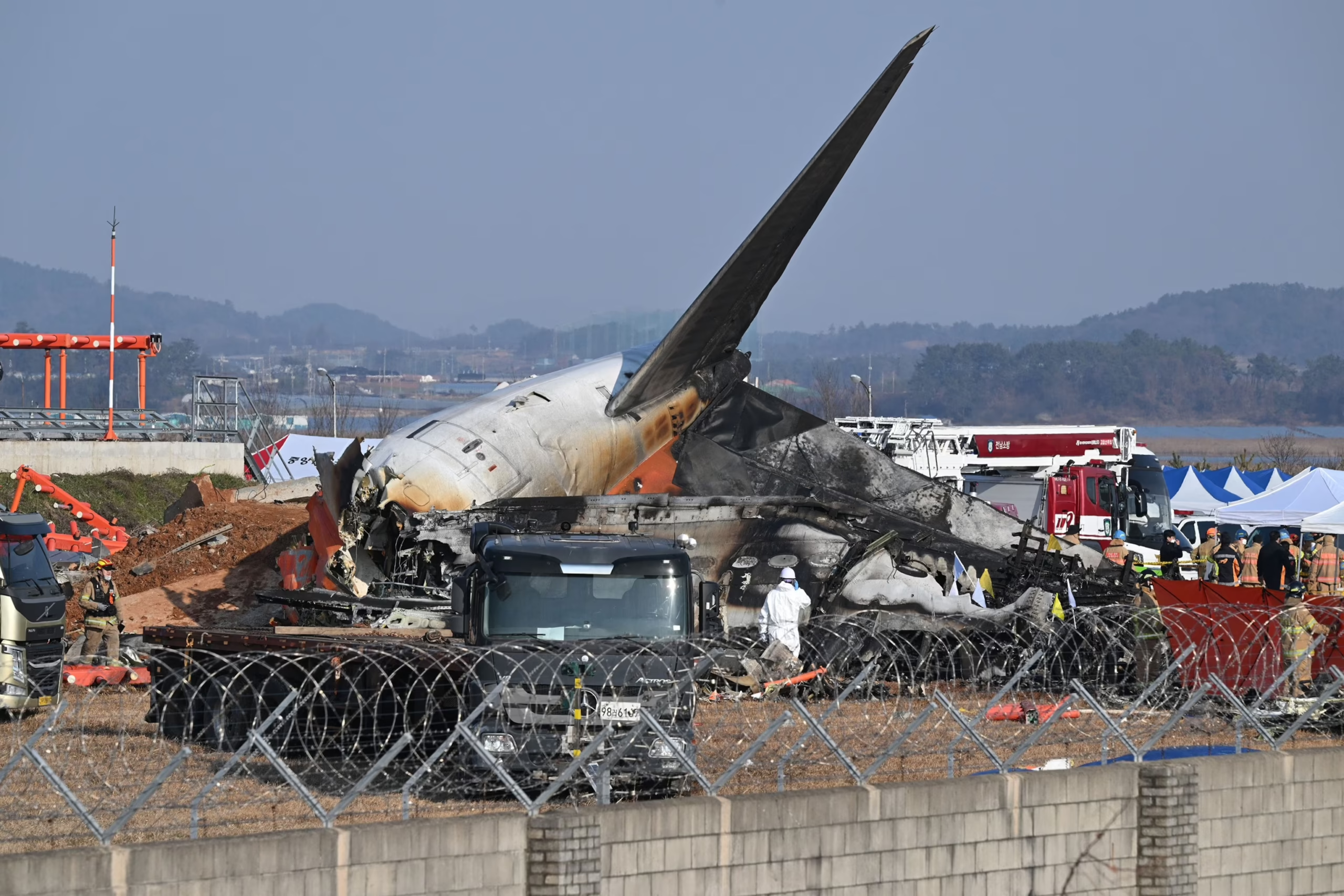South Korean authorities announced on Monday (January 6) that the closure of the Muan International Airport where the Jeju Air Plane crashed would be extended till January 14.
The December 29 incident involved Flight 2216, which was traveling from Thailand with 181 passengers and crew members. The aircraft belly-landed at the airport before colliding with a concrete barrier, erupting into a fiery explosion. Of the total passengers, only two survived the crash. Investigators are still working to determine the cause of the accident.
While the ministry did not provide a specific reason for the closure extension, Deputy Minister for Civil Aviation Joo Jong-wan noted last week that the timeline could be adjusted if the investigation into the crash takes longer than anticipated.
Acting Interior Minister Ko Ki-dong confirmed that the bodies of the 179 victims of the December 29 Jeju Air crash would be returned to their families on Monday. “Today, the process of handing over the victims to families is expected to be completed,” he said during a government meeting. He added that the handover would allow families to hold funerals after a week-long wait.
Investigators Probe Factors Behind Deadly Crash
The exact cause of the Boeing 737-800 crash remains under investigation, but authorities have identified several potential factors, including a bird strike, faulty landing gear, and issues with the runway barrier.
According to initial findings, the pilot reported a bird strike before aborting the first landing attempt. During a second attempt, the landing gear failed to deploy, leading to the devastating crash.
Authorities have intensified their probe, conducting search-and-seizure operations this week at Muan Airport, a regional aviation office in the southwestern city, and Jeju Air’s headquarters in Seoul, police confirmed.
A joint investigation team is intensifying its efforts to uncover the cause of South Korea’s deadliest air disaster. Two Korean investigators are scheduled to depart for the U.S. on Monday, bringing the flight data recorders for analysis in collaboration with the National Transportation Safety Board. These flight data recorders, along with cockpit voice recorders—collectively known as black boxes—hold crucial information that could shed light on the crash.
On Saturday, investigators completed the full transcript of the cockpit voice recorder recovered from the wreckage of Boeing 737-800. It remains uncertain whether the transcript will be made public.
Over the weekend, investigators also recovered two of the plane’s engines, with a representative from engine manufacturer GE joining the ongoing probe. Meanwhile, the transport ministry has extended its inspections of all Boeing 737-800 aircraft operated by Jeju Air and five other airlines in South Korea until January 10. The inspections include a thorough review of the planes’ maintenance records.






